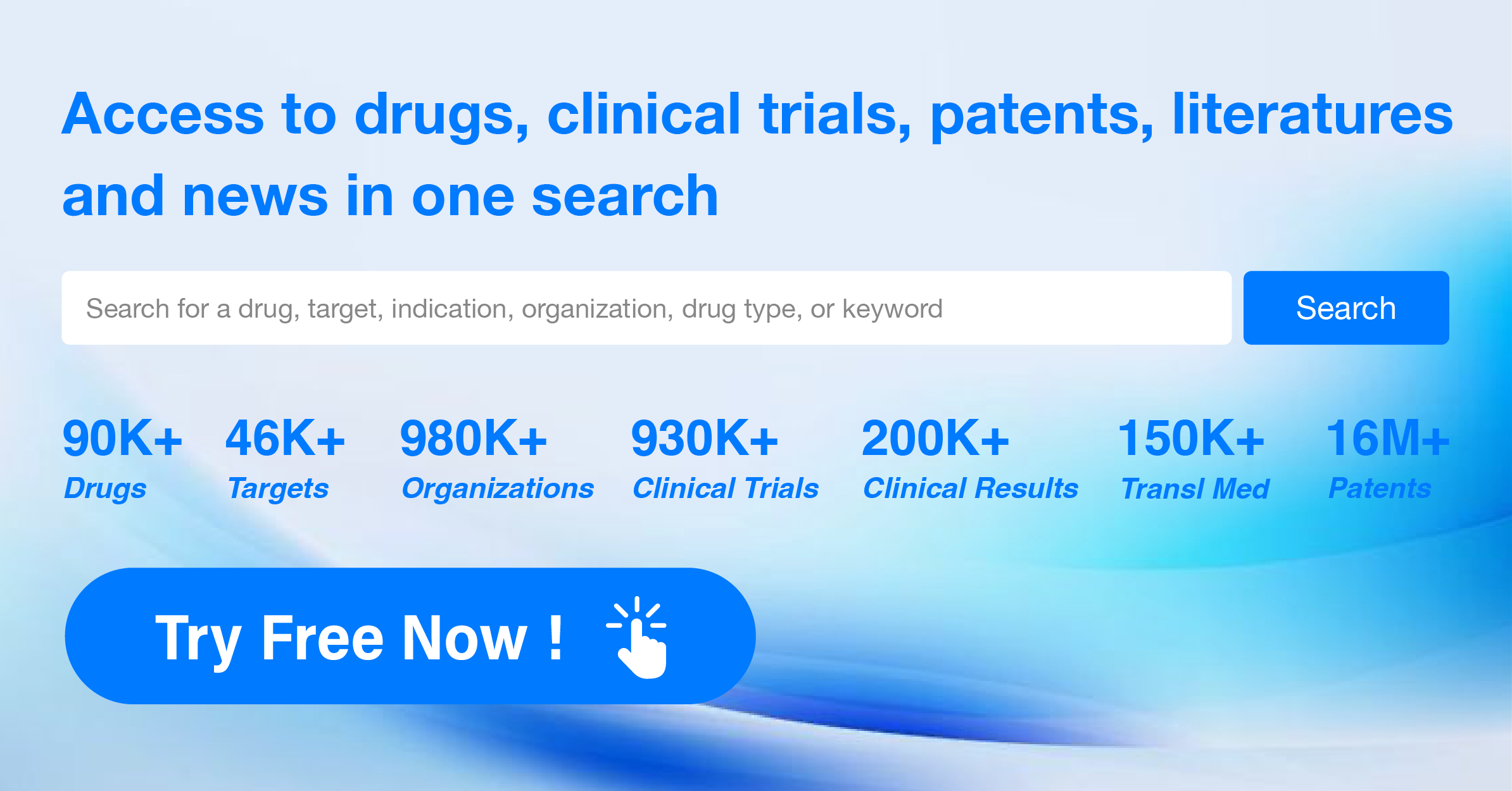Pharma Frontiers: Daily Digest of Global Pharmaceutical News – Jul 18
1.Junshi Biosciences Announces Acceptance of NDA for Toripalimab as First-Line Treatment for Advanced Hepatocellular Carcinoma
On July 17th, Junshi Biosciences announced that the National Medical Products Administration (NMPA) has accepted the New Drug Application (NDA) for the company's self-developed anti-PD-1 monoclonal antibody, Toripalimab, in combination with Bevacizumab for the first-line treatment of patients with unresectable or metastatic hepatocellular carcinoma (HCC). This marks the eleventh NDA submission of Toripalimab in mainland China. Liver cancer, with HCC accounting for approximately 90% of cases, is a common malignant tumor of the digestive system worldwide. The NDA for this new indication is primarily based on the HEPATORCH study (NCT04723004), which is a multicenter, randomized, open-label, positive drug-controlled, phase III clinical trial. The trial aims to evaluate the efficacy and safety of Toripalimab in combination with Bevacizumab as a first-line treatment for unresectable or metastatic HCC, compared to the standard treatment Sorafenib. By June 2024, the main endpoints of the HEPATORCH study, progression-free survival (PFS, based on independent radiological assessment) and overall survival (OS), had both met the predefined superior efficacy margins. Results show that Toripalimab in combination with Bevacizumab significantly extends PFS and OS in patients with advanced HCC, compared to Sorafenib, while also improving the objective response rate and time to disease progression among secondary endpoints. The safety profile of Toripalimab is consistent with known risks, with no new safety signals identified.
2.Zai Lab's Efgartigimod Approved in China for Generalized Myasthenia Gravis
On July 16, Zai Lab and argenx jointly announced that the National Medical Products Administration has approved the Biologics License Application for efgartigimod. It is approved for use in combination with standard therapy for the treatment of adult patients with acetylcholine receptor (AChR) antibody-positive generalized myasthenia gravis (gMG). The approval of efgartigimod subcutaneous injection is based on the positive results of the global Phase 3 ADAPT-SC study, a bridging study of the Phase 3 clinical trial ADAPT. Efgartigimod intravenous formulation was previously approved based on the ADAPT study for the treatment of adult patients with gMG. The ADAPT-SC study achieved its main endpoint of non-inferiority, showing a mean total reduction in Immunoglobulin G (IgG) of 66.4% in the subcutaneous injection group by day 29, compared to 62.2% in the intravenous formulation group. The study also met other crucial secondary endpoints, consistent with the results of the Phase 3 ADAPT study correlating total IgG reduction with clinical efficacy benefits. Additionally, the safety profile of efgartigimod subcutaneous injection was consistent with that observed in the Phase 3 ADAPT study. Overall, patients tolerated the treatment well; the most common adverse event was injection site reactions (ISRs), which are common with subcutaneous injections of biologics. All ISRs were mild to moderate and diminished over time. Beyond gMG, efgartigimod subcutaneous injection is also being explored for potential treatment of other autoimmune diseases. In June 2024, the U.S. Food and Drug Administration (FDA) approved a new indication for efgartigimod subcutaneous injection to treat patients with chronic inflammatory demyelinating polyradiculoneuropathy (CIDP).
3.The Phase I study results for Roche's oral GLP-1 receptor agonist, CT-996, are positive, achieving a 6.1% weight reduction in one month!
On July 17, Roche announced that two treatment groups in the Phase I clinical trial of CT-996 achieved positive results. Data revealed that non-type 2 diabetic obese subjects treated with CT-996 experienced a mean weight reduction of -6.1% (p < 0.001), adjusted for placebo, after 4 weeks. CT-996 is an investigational daily oral small molecule glucagon-like peptide-1 (GLP-1) receptor agonist developed by Roche for the treatment of type 2 diabetes and obesity. Unlike endogenous GLP-1 hormone, CT-996 acts as a biased GLP-1 receptor agonist, activating cAMP signaling pathways which decrease β-arrestin recruitment, thereby achieving control of blood sugar and weight reduction. The CT-996-201 trial (NCT05814107) is a multipart, multicohort, Phase I, randomized, double-blind, placebo-controlled, single and multiple ascending dose study designed to evaluate the safety, tolerability, pharmacokinetics, and pharmacodynamics of CT-996 in overweight or obese healthy adults, including type 2 diabetics and non-diabetics. CT-996 was well-tolerated, primarily presenting mild to moderate gastrointestinal-related adverse events, consistent with the safety profile of incretin-based therapies, with no treatment-related discontinuations observed. The study also showed that the blood levels of CT-996 were essentially unaffected whether during fasting or after a standardized high-fat meal. Thus, CT-996 can be administered without regard to meal timing, offering greater dosing flexibility for patients. Based on the study data, CT-996 is expected not only to serve as a therapy for achieving blood sugar control and inducing weight loss but might also be employed for oral maintenance treatment following weight loss induced by injectable formulations. Following the favorable Phase I results, CT-996 will proceed to Phase II clinical development.
4.Roche Announces Upcoming Phase II Trial for Potential "Best-in-Class" Weight Loss Therapy CT-388
On July 17th, Roche announced that at the upcoming 2024 European Association for the Study of Diabetes (EASD) annual meeting, it will present detailed results of its Phase I clinical trial for the investigational drug CT-388, a potential "best-in-class" dual agonist targeting glucose-dependent insulinotropic polypeptide (GIP) and glucagon-like peptide-1 (GLP-1) receptors. This treatment is intended for patients with obesity and type 2 diabetes. Analysis from the trial shows that after 24 weeks of once-weekly subcutaneous injections of 22 mg of CT-388, the average weight reduction was 18.8% and had not yet reached a plateau, suggesting further potential for weight decrease. Additionally, nearly half of the patients achieved weight reductions exceeding 20%. Roche plans to commence a Phase II clinical trial of CT-388 later this year to further examine its weight reduction capabilities as well as its potential to improve cardiovascular diseases and type 2 diabetes.
Obesity is one of the most prevalent health challenges globally and a field in urgent need of scientific advancements. It is associated with numerous health issues and comorbidities including type 2 diabetes, cardiovascular diseases, fatty liver disease, and chronic kidney disease, collectively imposing enormous strains on global healthcare systems. Projections indicate that by 2035, over 40% of the world population will be overweight or obese, nearing 50% of the global population.The CT-388-101 trial, disclosed earlier, is a multicohort, randomized, double-blind, placebo-controlled Phase I study designed to evaluate the safety, tolerability, pharmacokinetics, and pharmacodynamics of CT-388 in overweight or obese healthy adults as well as in patients with obesity and type 2 diabetes.
5.Io Therapeutics' Small Molecule Crosses Blood-Brain Barrier Showing Potential for ALS Treatment
On July 17th, Io Therapeutics announced research findings on its investigational RXR nuclear receptor agonist, IRX4204. Analysis demonstrated that IRX4204 can restore cellular resistance to autoimmunity, promote myelin protection and repair, possesses the ability to cross the blood-brain barrier, and has shown favorable safety outcomes in humans, supporting its potential use in the treatment of Amyotrophic Lateral Sclerosis (ALS). Io Therapeutics is currently planning a Phase 2 trial for this drug in the treatment of ALS. ALS is a progressively debilitating and ultimately fatal neurodegenerative disease, the etiology and pathogenesis of which are not fully understood. Preclinical research conducted by Io Therapeutics indicated that in various neuroautoimmune animal models, IRX4204 promoted the growth of human Treg cells and inhibited the growth of human Th17 cells, restoring their balance and inhibiting neurodegeneration, thus showing potential for treating ALS. In an experimental model where autoimmune Th17 cells were transferred to healthy mice, IRX4204 demonstrated 100% effectiveness in suppressing neuroautoimmune transfer. In this model, the autoimmune neuroinflammation in the recipient mice completely depended on the pathogenic actions of the transferred autoimmune Th17 cells. Experimentally, IRX4204 was shown to inhibit the production of the pro-inflammatory cytokine IL-17 by Th17 cells, and suppress another key pro-inflammatory cytokine IL-6 produced by CNS microglia. IRX4204 also promoted the maturation of oligodendrocyte precursor cells and their development into myelinating oligodendrocytes, thereby repairing damaged myelin. IRX4204 had a protective effect on nerves and myelin in a demyelination mouse model, and facilitated myelin repair.
6.Betta Pharmaceuticals Collaboration on Long-acting Ocular Therapy for New Indications Approved for Clinical Trials!
On July 15th, Betta Pharmaceuticals, in collaboration with EyePoint Pharmaceuticals, received clinical trial approval from the China National Medical Products Administration (NMPA) Drug Evaluation Center (CDE) for a new indication of their ocular treatment product, EYP-1901 intravitreal implant. This trial is intended to treat patients with wet (neovascular) age-related macular degeneration (wAMD) who have previously undergone anti-VEGF intravitreal injections. Notably, at the end of 2023, EYP-1901 achieved positive topline results in a phase 2 clinical trial for the wAMD indication in the United States, demonstrating potential for treatment lasting up to six months without the need for additional therapy, showing promising developmental prospects. On July 16th, Betta Pharmaceuticals officially announced this clinical approval via a press release.
The core active ingredient of the EYP-1901 intravitreal implant, Vorolanib, developed by Betta Pharmaceuticals, combined with EyePoint’s unique sustained-release technology, allows for a controlled and tolerable continuous release of Vorolanib in the eye, extending the anti-VEGF injection treatment cycle and improving patient compliance. Vorolanib is a multi-targeted tyrosine kinase inhibitor that concurrently inhibits the function of Vascular Endothelial Growth Factor Receptor (VEGFR) and Platelet-Derived Growth Factor Receptor (PDGFR), effectively inhibiting the formation of new blood vessels in the eye, reducing vascular leakage, and protecting the macular area from damage.
7.Over $570 Million! Fulian Pharmaceutical Grants Global Rights for a Novel Radioactive Cancer Drug
On July 17, Fulian Pharmaceutical, a company specializing in radioactive drug therapy, announced that it has signed an out-licensing agreement with biotechnology firm SK Biopharmaceuticals. According to the agreement, Fulian Pharmaceutical grants SK Biopharmaceuticals exclusive rights to conduct clinical research, development, production, and commercialization globally for the radioactive drug FL-091, targeting cancers positive for Neurotensin Receptor Type 1 (NTSR1). As per the press release, the total value of the transaction is $571.5 million, including upfront payments, research and development, and commercial milestones, with royalties not accounted for in this total. SK Biopharmaceuticals will introduce the Radioactive Drug Conjugate (RDC) project FL-091 and its alternative compounds, aiming to develop it into a novel anti-tumor drug. SK Biopharmaceuticals also holds the priority right to negotiate for other preselected RDC projects from Fulian Pharmaceutical. FL-091 is a small molecule radioactive ligand carrier designed to specifically bind NTSR1, delivering radioactive therapeutic agents precisely to cancer cells. NTSR1 is a receptor protein expressed highly selectively in various solid tumors including colorectal and pancreatic cancers. According to a news release from Fulian Pharmaceutical, the radioactive ligand FL-091 has demonstrated favorable biodistribution properties, significantly enhanced NTSR1 binding affinity, and excellent anti-tumor activity. Currently, the targeted NTSR1-positive cancer α-therapy candidate drug 225Ac-FL-091 is under development.
8.Eisai Announces Licensing Collaboration on Oral Antifungal Medication for Treating Fungal Infections
On July 16, Eisai Co., Ltd. announced a licensing agreement with Sato Pharmaceutical regarding the development and commercialization rights for the antifungal drug fosravuconazole in the regions of Asia/Oceania, including the 10 ASEAN nations, Australia, New Zealand, South Korea, and Taiwan (China). Fosravuconazole is a novel oral antifungal medication discovered and developed by Eisai. It is a prodrug that rapidly converts into its active form, ravuconazole, improving the solubility and bioavailability of the active ingredient. Mechanistically, ravuconazole exhibits antifungal activity by inhibiting the biosynthesis of ergosterol, a membrane component in fungal cells.
In Japan, Seren Pharmaceutical and Sato Pharmaceutical have developed fosravuconazole for the treatment of onychomycosis (nail fungus), following an exclusive development, commercialization, and sales licensing agreement previously signed with Eisai. The product was approved for marketing in Japan in 2018 under the trade name Nailin, and is commercialized jointly by Sato Pharmaceutical and Eisai.
Under the terms of the newly signed agreement, Eisai will receive an upfront payment, and is entitled to receive regulatory milestone payments based on sales over a specific period. Additionally, Eisai retains the rights to develop and commercialize fosravuconazole for treating mycetoma (a frequently neglected tropical disease) and related conditions.
How to obtain the latest research advancements in the field of biopharmaceuticals?
In the Synapse database, you can keep abreast of the latest research and development advances in drugs, targets, indications, organizations, etc., anywhere and anytime, on a daily or weekly basis. Click on the image below to embark on a brand new journey of drug discovery!




